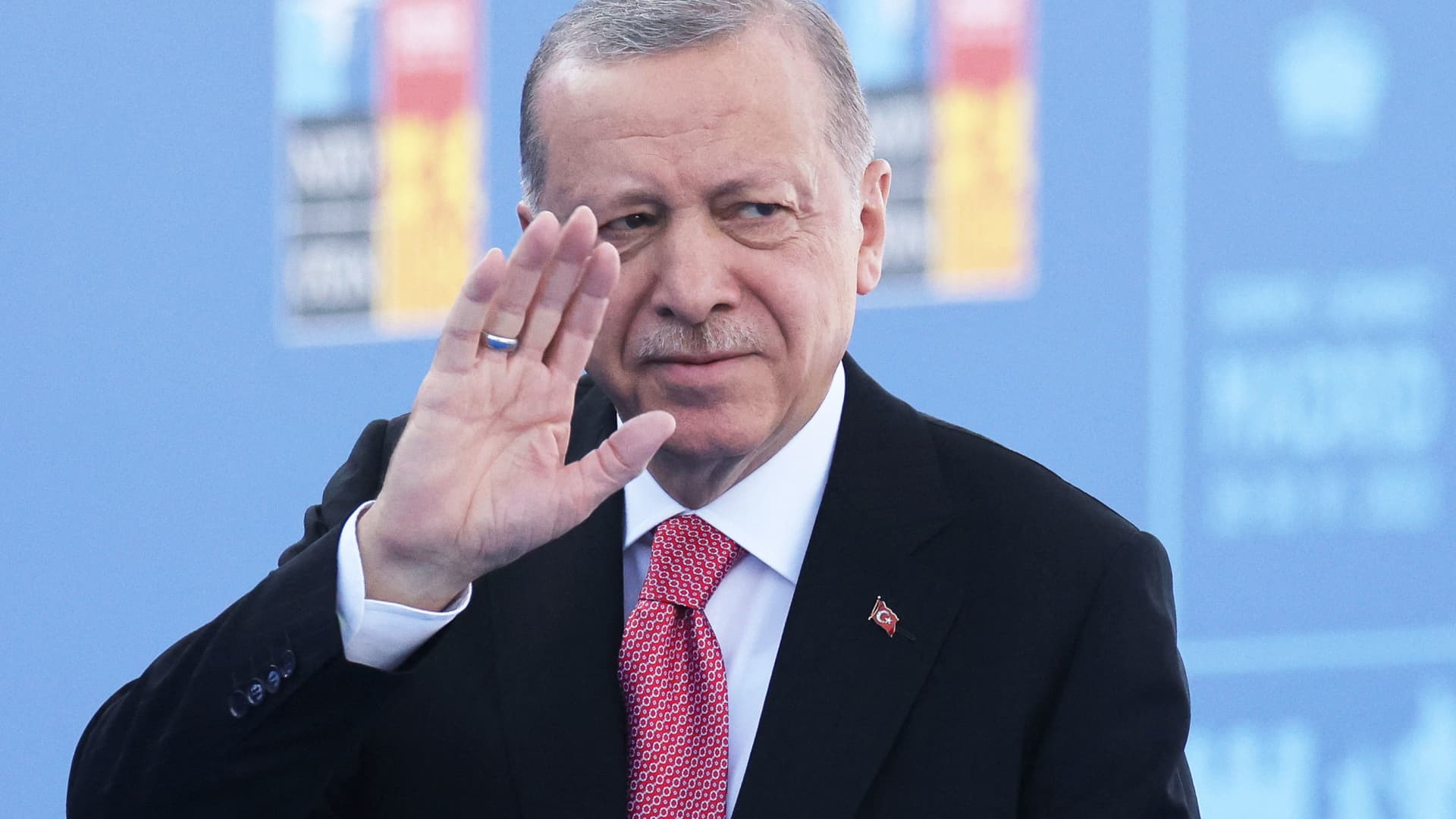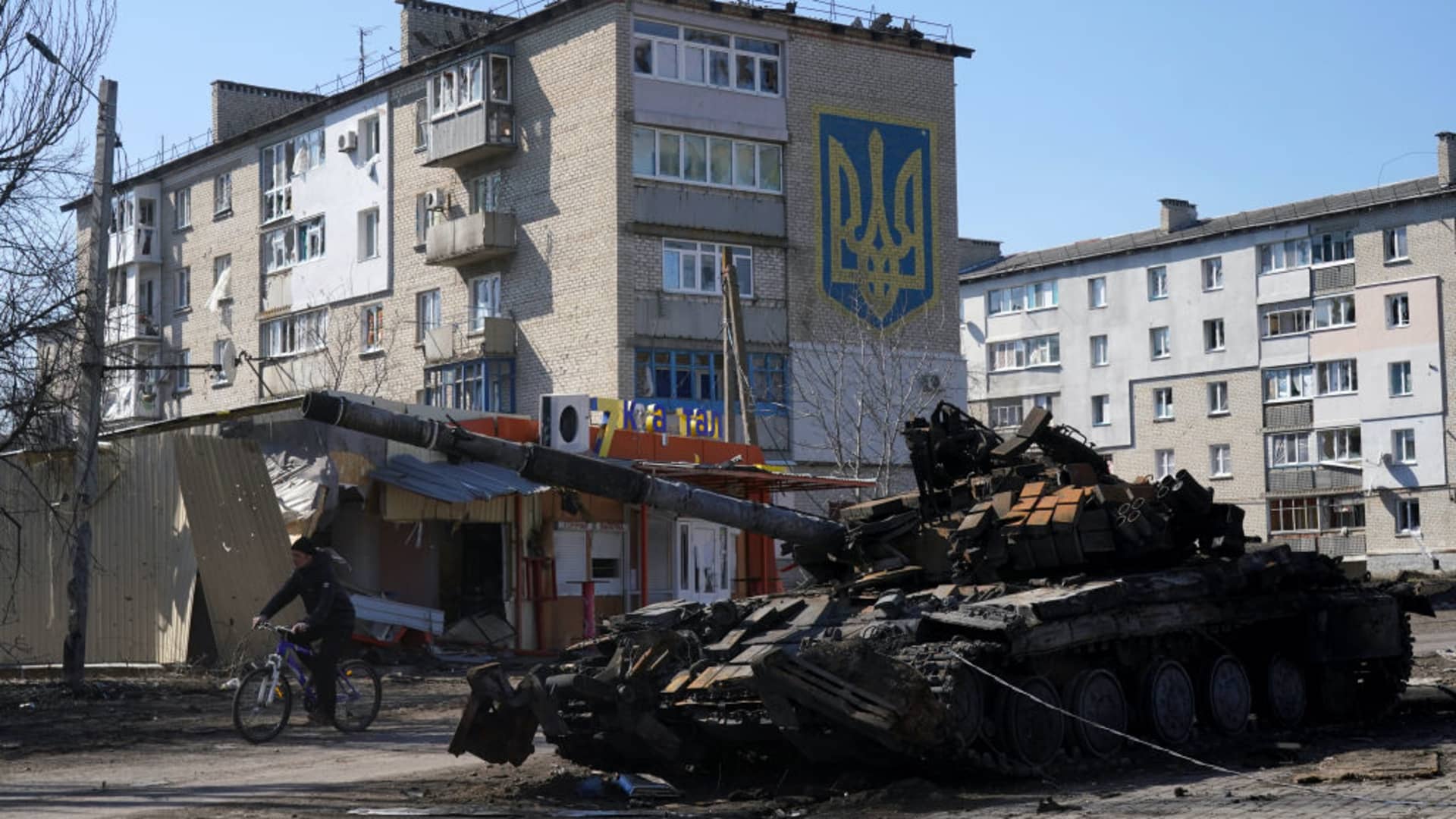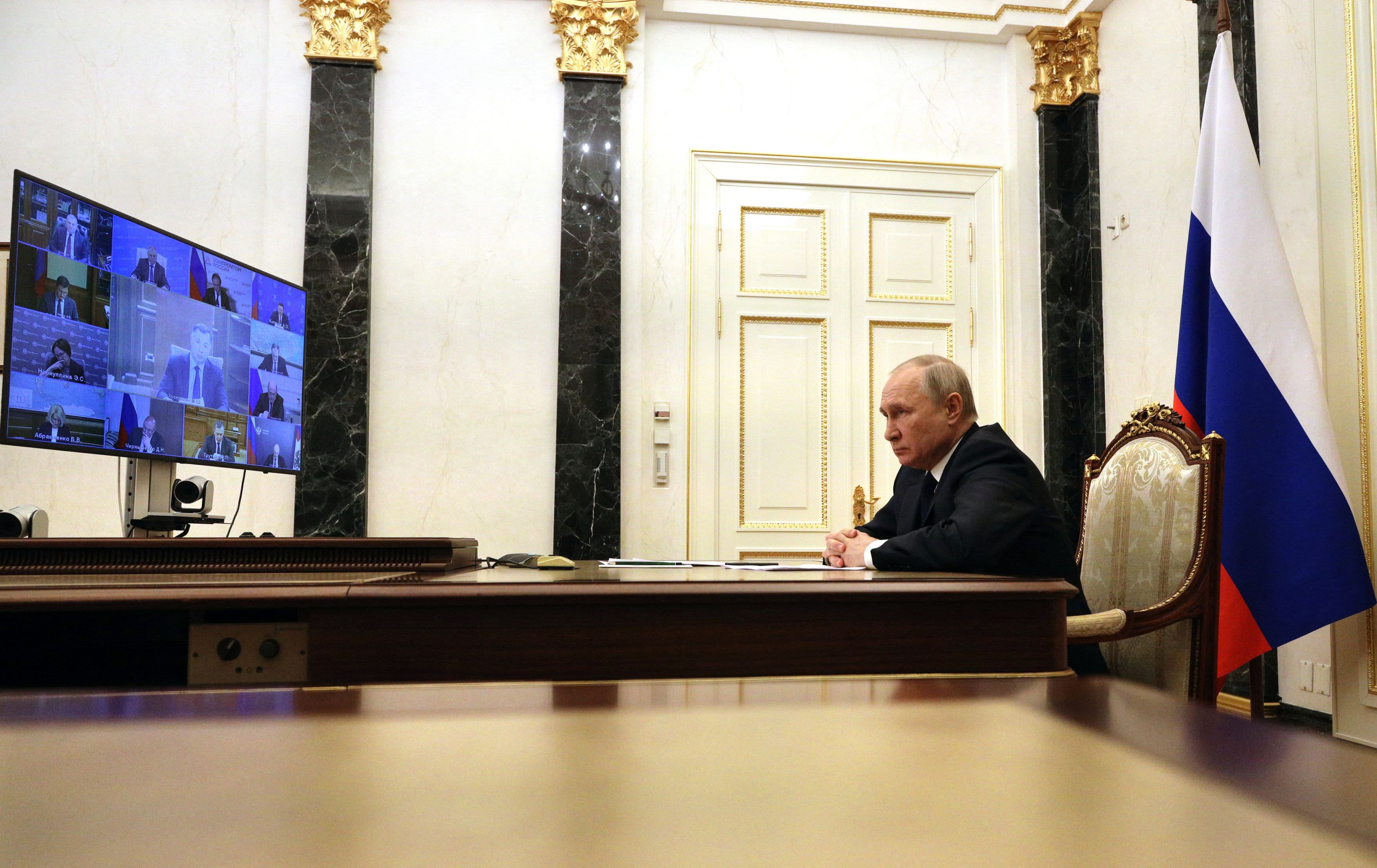Erdogan suggests Turkey could accept Finland into NATO — without Sweden
Erdogan, angry at Sweden's government for a number of reasons, is poised to make or break both countries' NATO accession plans.

Turkish President Tayyip Erdogan arrives for a NATO summit in Madrid, Spain June 29, 2022.
Nacho Doce | Reuters
Turkish President Recep Tayyip Erdogan handed another blow to Sweden's NATO bid, suggesting that his government could approve Finland's NATO membership application without its Nordic neighbor.
Finland and Sweden both formally applied to join the 73-year-old defense alliance in May of last year, reversing their long-held policy of nonalignment in the wake of Russia's full-scale invasion of Ukraine. The two have vowed to take their steps forward in tandem.
Erdogan, angry at Sweden's government for a number of reasons, is poised to make or break both countries' NATO accession plans, as each state's application requires unanimous approval from all 30 current members. Hungary is the only country besides Turkey that is yet to approve the Nordic countries' bids, which the rest of the member states want to fast-track.
"We may deliver Finland a different message [on their application], and Sweden would be shocked when they see our message. But Finland should not make the same mistake Sweden did," Erdogan said during a speech on Sunday.
The comments come days after Erdogan threatened Sweden's NATO membership over a Quran burning led by right-wing extremists that took place in front of the Turkish embassy in Stockholm, something Swedish authorities condemned but said was legal under the country's free speech laws.
"Those who allow such blasphemy in front of our embassy can no longer expect our support for their NATO membership," Erdogan said on Jan. 23.
Sweden's Foreign Minister Ann Linde and Finland's Foreign Minister Pekka Haavisto attend a news conference with NATO Secretary General Jens Stoltenberg, after signing their countries' accession protocols at the alliance's headquarters in Brussels, Belgium July 5, 2022.
Yves Herman | Reuters
Turkey's animosity toward Sweden centers mainly on Sweden's support for Kurdish groups that Ankara considers to be terrorists or affiliated with militants, and on weapons embargoes that both Sweden and Finland, along with other EU countries, put on Turkey for its targeting of Kurdish militias in Syria.
Finland lifted its nearly three-year-long arms embargo on Turkey just last week as part of its effort to improve the two countries' relations and bring itself one step closer to winning its NATO bid.
But the relationship between Stockholm and Ankara currently shows no signs of improving.
Things got so heated after the Quran burning episode in the Swedish capital and an anti-Erdogan protest by Kurdish activists there just days prior that Finland's foreign minister called for a "time-out" in talks with Turkey over the Nordic states' accession to NATO.
"A time-out is needed before we return to the three-way talks and see where we are when the dust has settled after the current situation, so no conclusions should be drawn yet ... I think there will be a break for a couple of weeks," Pekka Haavisto told Reuters in an interview published Jan. 24.
Sweden's leadership has bluntly said it will not be able to meet all of Turkey's demands. Meanwhile, Turkey has presented it with a deadline of sorts.
"Turkey both confirms that we have done what we said we would do, but they also say that they want things that we cannot or do not want to give them," Swedish Prime Minister Ulf Kristersson said in early January. Nonetheless, he expressed confidence that Turkey would approve his country's NATO bid.
Turkish presidential spokesperson Ibrahim Kalin recently said that Sweden has eight to 10 weeks to make the changes demanded by Ankara as Turkey's Parliament could go into recess before the country's crucial presidential election on May 14. Sweden says it needs six more months to make those changes.
Finland has not yet commented as to how the potential for its NATO accession without its neighbor and close ally Sweden might affect its plans to join the alliance.

 JaneWalter
JaneWalter 





















![Run An Ecommerce SEO Audit in 4 Stages [+ Free Workbook]](https://api.backlinko.com/app/uploads/2025/06/ecommerce-seo-audit-featured-image.png)









